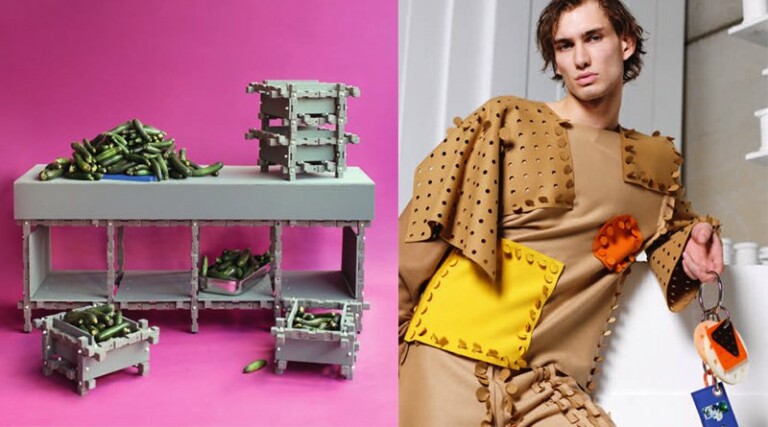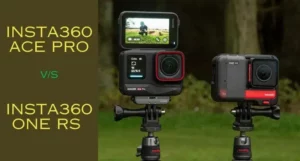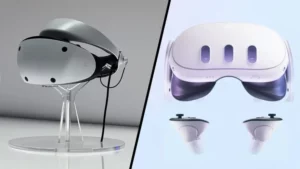Responding to overconsumption and our oversaturated consumer landscape, designer Helen Kirkum proposes a circular alternative. She has repurposed and remastered discarded sneakers, breaking the originals down into multiple components and then reconfiguring these parts into new and unique products.

With the Post-Couture Collective Martijn van Strien has set out to provide an alternative to disposable fashion. The brand, which claims to be the first fashion label to truly embrace maker culture, aims to introduce a retail system that is sustainable and affordable. Products are dispatched as flat-pack DIY kits and put together post-purchase, reducing the waste caused by overproduction. The laser-cut pieces do not need to be sewn together but instead are assembled using interlocking seams. Designs can also be downloaded as CAD files for DIY production in any suitable material
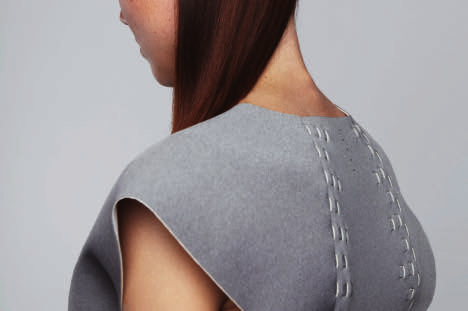
In her Joining Bottles project, Micaella Pedros uses discarded plastic bottles as a joining material, gently heating the plastic, which then becomes a substitute for bolts and glue which Pedros uses to bind furniture parts together. Her functional tables and benches demonstrate the potential of low-fi repair and of reappropriation. This is an ongoing initiative; Pedros held a workshop with R-Urban in Hackney Wick in London, sharing her technique with the local community and encouraging conversations about local waste, recycling and DIY.
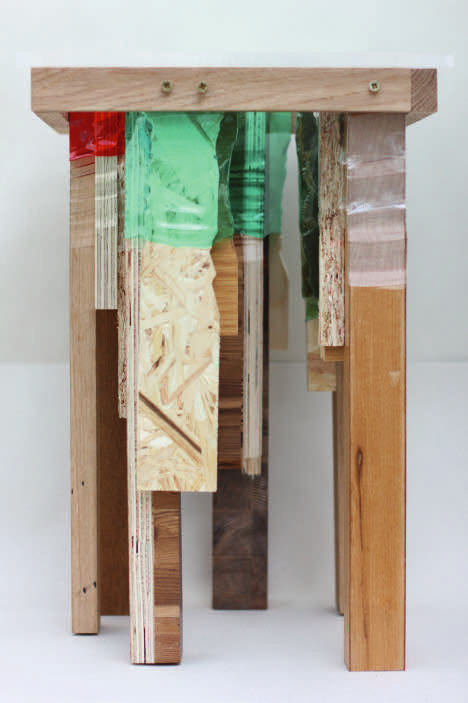
Bethany Williams worked with supermarket giant Tesco and the Vauxhall Food Bank to create an alternative collection of menswear, and in the process collaborated with a local community of craftspeople in the Vauxhall area of London. The Breadline collection was designed from waste donated by food bank users in exchange for Tesco’s fresh fruit and vegetables, and from recycled cardboard donated by Tesco. Williams worked with local artisans to develop the waste materials into hand-crafted woven, printed, knitted and embroidered fabrics.
Product and furniture designer James Shaw, in an exploration of the benefits of standardisation and modularity, has developed a kitchen made almost entirely out of recycled plastic, from sink to shelves and work surfaces. This modular system slots together, with units created out of tough, agricultural plastic used in farming. His design was originally commissioned by Grizedale Arts for A Fair Land, an exhibition in the Irish Museum of Modern Art.
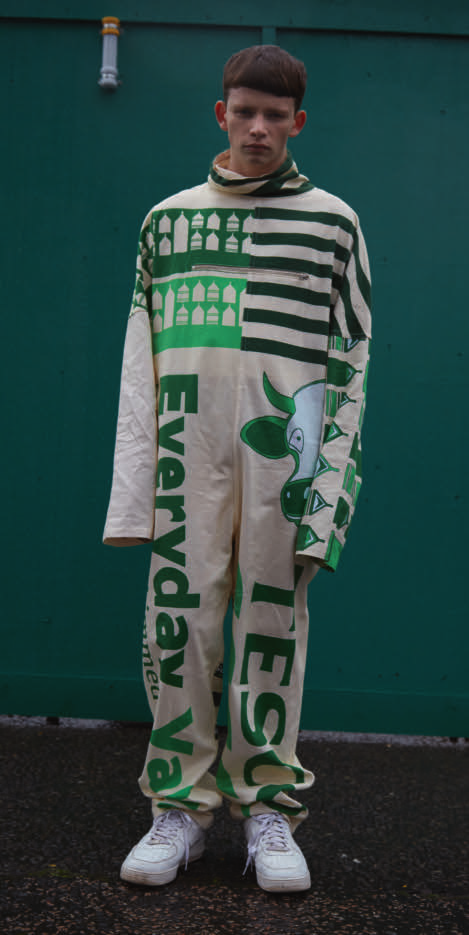
Breadline by Bethany Williams
Inspired by modular furniture and Meccano toys for children, Emmanuel A Ryngaert has designed the Meccano fashion collection as pieces that fit together without stitching or technical joining. The modular collection is made up of laser-cut shapes with interlocking seams, and has been designed to be made up and taken apart again, so that the pieces can be endlessly reassembled in different ways.
Sander Wassink developed Contrabande to challenge our assumptions over the provenance of our purchases, and highlight the fact that industrial production today is completely globalised.
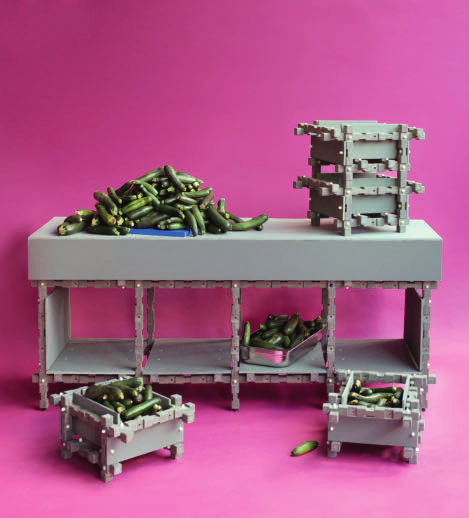
Modular Mechanics Kitchen by James Shaw
With supply chains spanning continents, consumers often have no idea where products come from. Wassink travelled to Morocco to create a reinterpretation of the quintessentially Dutch Gispen chair. Restricting his use of materials to what was locally available, and collaborating with local craftspeople, the designer created a contemporary version of the Dutch design classic with a hybridised aesthetic and a very striking geographical heritage.
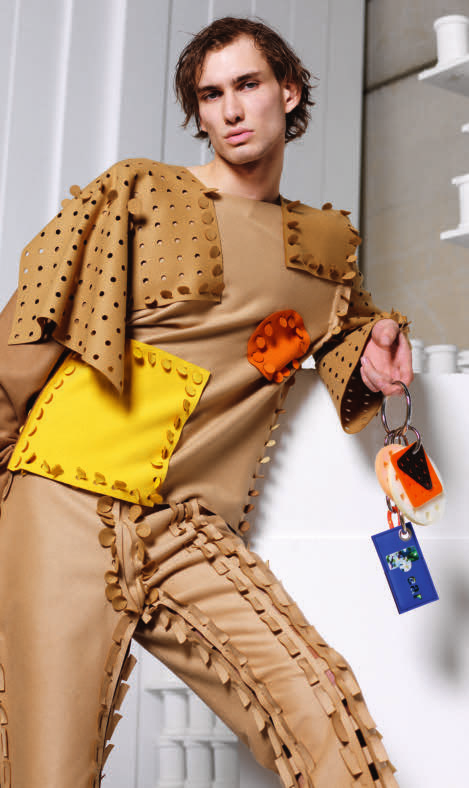
Meccano by Emmanuel A Ryngaert
Adam Blencowe’s Dado furniture is a series of highly adaptable shelving units that can made up almost anywhere in the world using digital technology. The units are composed of metal frames with cut-out designs; the shelving is made from wooden dado rails, which are readily available everywhere. Blencowe has developed this concept thanks to an online digital library that categorises dado rails by locality across the globe; he has devised a corresponding downloadable cut-out design for the frame. The shelving was designed in collaboration with Ineke Hans for Opendesk (read more about Opendesk in our Toolkit section).
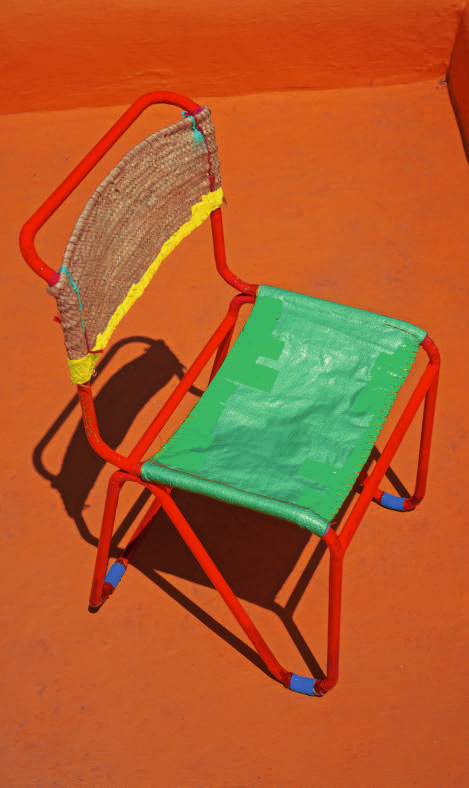
Contrabande by Sander Wassink
An investigation into appropriation, the furniture pieces in this collection are formed out of modules from an existing industrial-scale shelving system. By re-examining the individual components of the system, altering their configuration and shrinking the scale of composition, Penadés has highlighted the value and unexpected aesthetic quality of these ubiquitous and overlooked parts.
